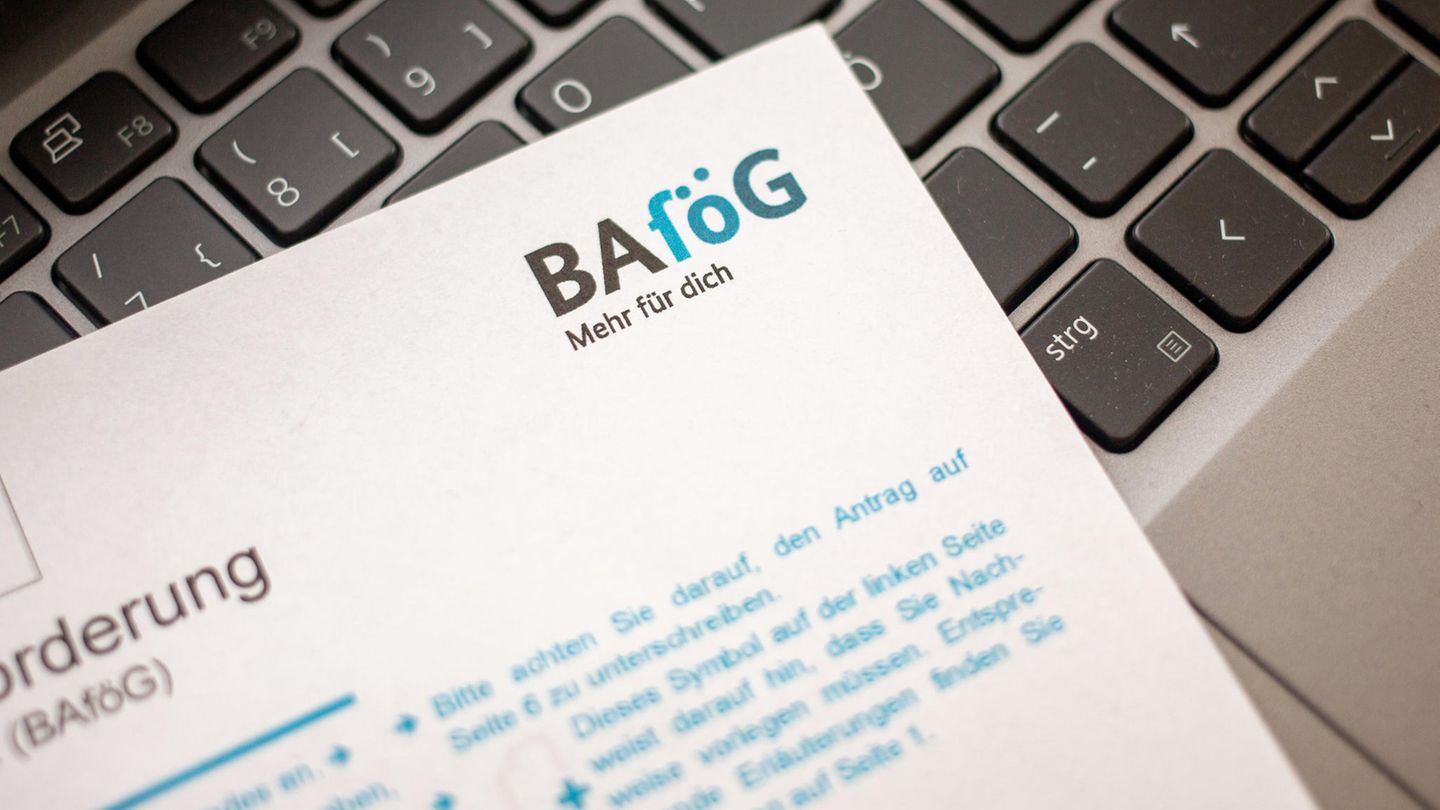For a long time, celebrated by many as an important instrument in the fight for equal opportunities, the Bafög training grant is now heavily criticized. A look back at history and what is going wrong today.
Federal Minister of Education Anja Karliczek drew a positive balance on the 50th anniversary of the introduction of student loans. The CDU politician told the German Press Agency that one could be proud of the many personal success stories that this made possible. “50 years of Bafög are an unprecedented national show of strength for equal opportunities in Germany.”
Bafög reform in the next legislative period?
Karliczek also spoke out in favor of reforming student grants after the federal election. “We should develop the student loan further and make it more flexible in the next legislative period.” The Minister of Education can envision an increase in the age limit for student loans, so that people who decide to study later in life can also apply for the benefit.
Critical voices about the anniversary come from the opposition, trade unions and the German Student Union (DSW), which handles the processing of student loan applications and the payment of benefits. They are calling for fundamental reforms, as the number of Bafög recipients continues to decline from year to year, according to the Federal Statistical Office.
Fewer and fewer people are applying for compensation payments
“There is not much left of the original goal of the student loan system to create equal opportunities in the education system,” said the deputy chairwoman of the German Federation of Trade Unions, Elke Hannack, of the dpa. Germany cannot and should not afford to cut off working children from their educational opportunities. The DGB calls for a student loan reform “which again allows more broad funding”. The social origin should not decide on the educational opportunities.
After a high of 979,000 Bafög recipients (including student Bafög) in 2012, the number has recently continued to decline and in 2020, according to the Federal Statistical Office, was only 639,000.
How it all began: the history of student loans
A look back: On September 1, 1971, the “Federal Training Assistance Act” (Bafög) came into force. The Federal Youth Minister responsible for this, Käte Strobel (SPD), spoke at the time of a “very considerable stretch of the road to dismantling educational barriers.” The training subsidy is being advanced “a very considerable, yes, decisive step” in favor of better educational opportunities.
The student loan has been reformed several times over the years. At first it was a pure grant with no repayment. It was later converted to a full loan. The rule has been in effect since 1990: One half is given for free, the other half has to be paid back, but now no more than 10,010 euros. The student loan amount is based, among other things, on the parents’ income and assets. There is currently a maximum of 861 euros.
According to the Federal Statistical Office, more than 36 million people have received the benefit since the office began its survey in 1975. According to the University Rectors’ Conference, 270,000 of the 606,000 enrolled students initially benefited from this (44.6 percent). According to the figures from the Federal Statistical Office, there were 466,000 in 2020, but with 2.9 million students now enrolled.
Criticism of the latest reforms
“Instead of the trend reversal promised by Karliczek, the continuous decline in student loans continues,” said the university policy spokesman for the Green parliamentary group, Kai Gehring. The last Bafög reform of 2019, in which, among other things, tax exemptions for the crediting of income and assets were increased in order to enlarge the circle of recipients, turns out to be a complete flop. Gehring called for a new start “with basic security for students and trainees.”
The German Student Union is also calling for a “fundamental reform”. 50 years of Bafög are a success story, said DSW General Secretary Achim Meyer auf der Heyde, but the pressure to act is great. “We have to get the student loan in good shape for the next 50 years, and that includes much more than quantitative increases in funding rates and parental allowances.”

In a key point paper that is available to the dpa, the DSW speaks out in favor of making the service a full subsidy again – i.e. without repayment obligations – as in the early days of the Bafög. In addition, the Studentenwerke are calling for the group of beneficiaries to be expanded so that middle-income students from parental homes can also have access to student loans. In addition, an extension of the maximum funding period is required.
What could change in the next few years?
In the medium term, the DSW proposes a “three-basket model”: Basic financial support for all students that is higher than the amount of child benefit plus student loans based on needs and income, plus an amount for one-off expenses at the beginning of the semester, for example for one Laptop or the semester fee.
The FDP parliamentary group in the Bundestag also presented proposals for reform in May. For all students there should be a basic grant of 200 euros per month, which does not have to be repaid – there would be no child benefit for the parents. In addition, there would be another non-repayable 200 euros if you work at least ten hours per week during your studies or if you are volunteering or caring for relatives.
Jane Stock is a technology author, who has written for 24 Hours World. She writes about the latest in technology news and trends, and is always on the lookout for new and innovative ways to improve his audience’s experience.




